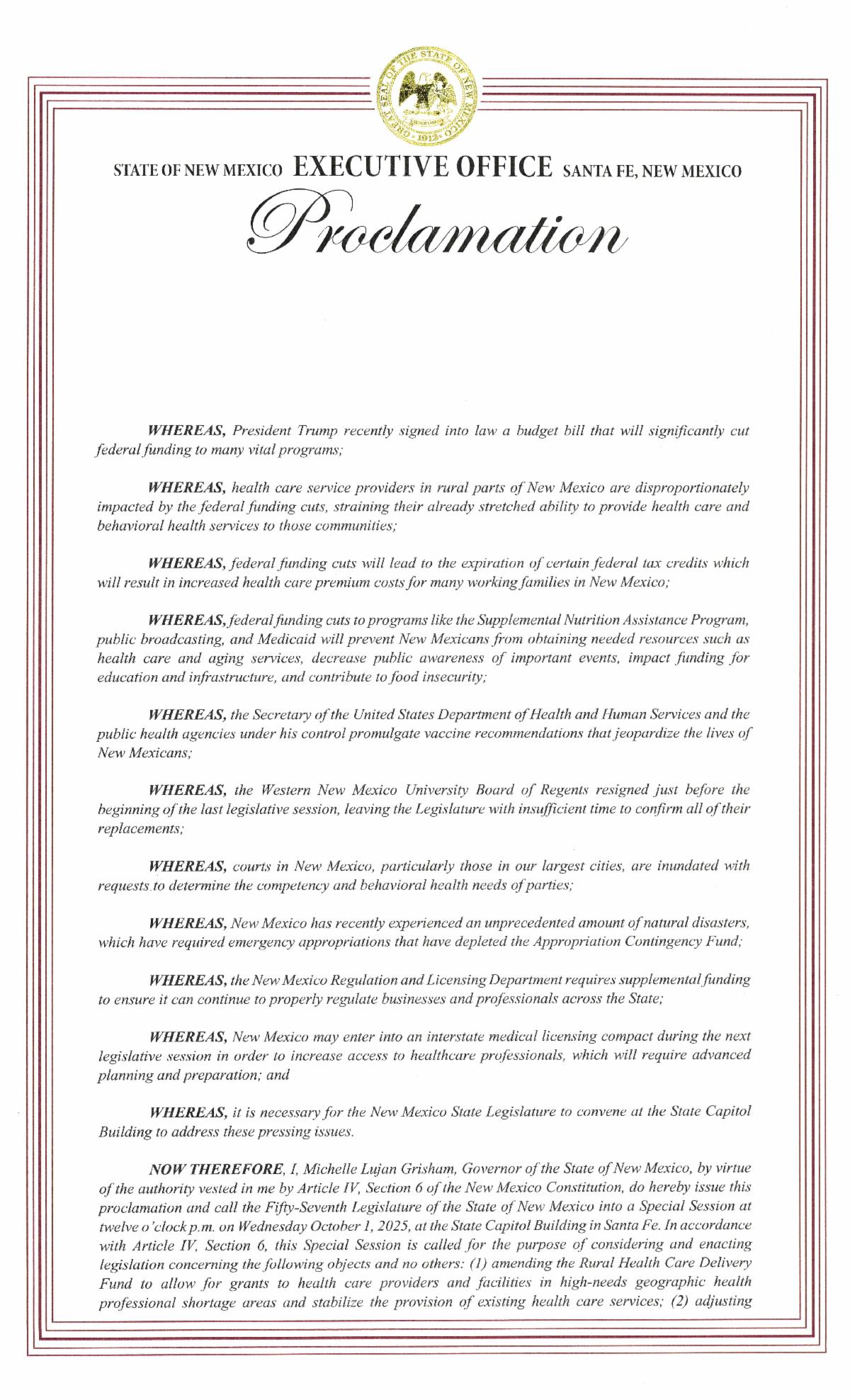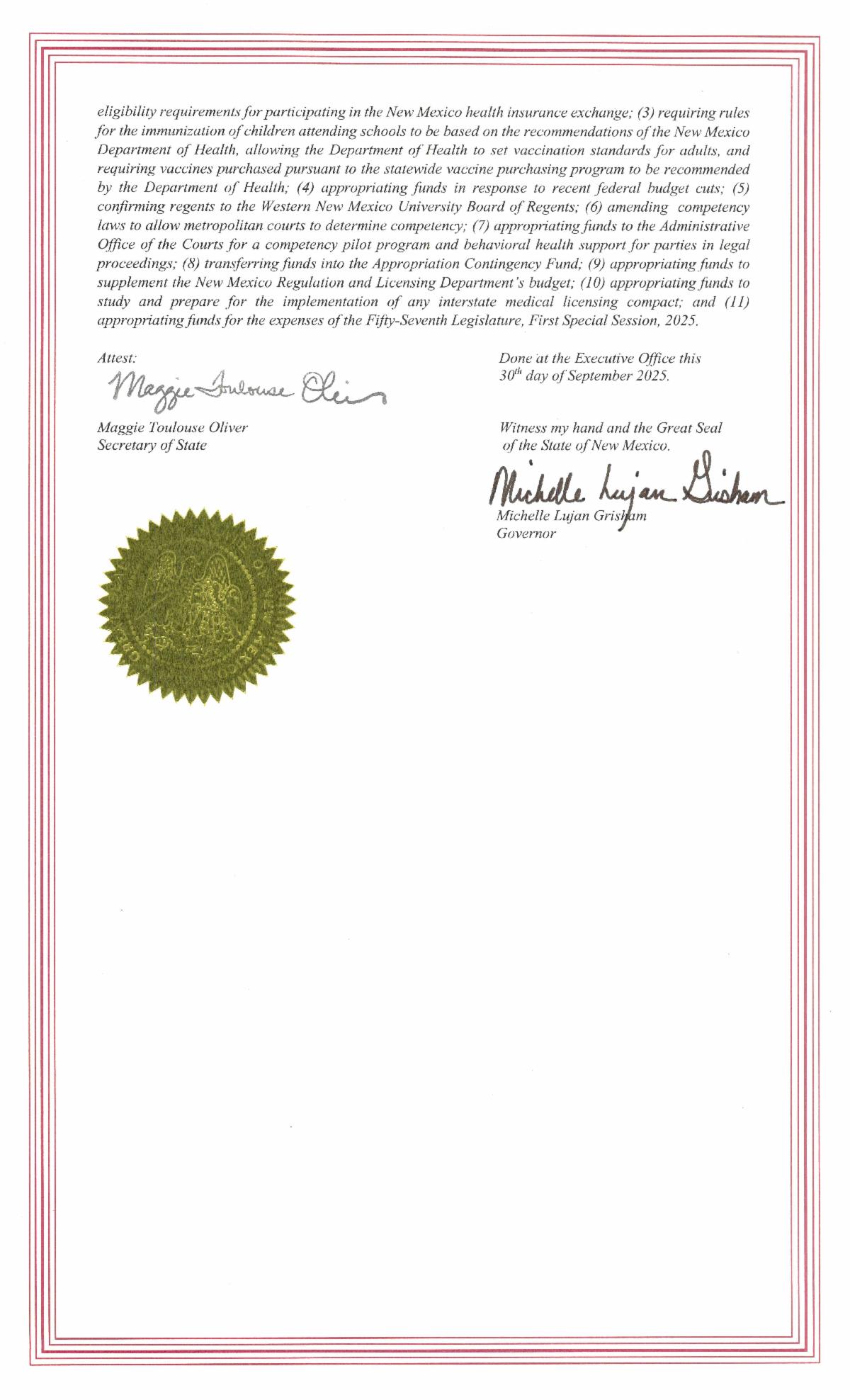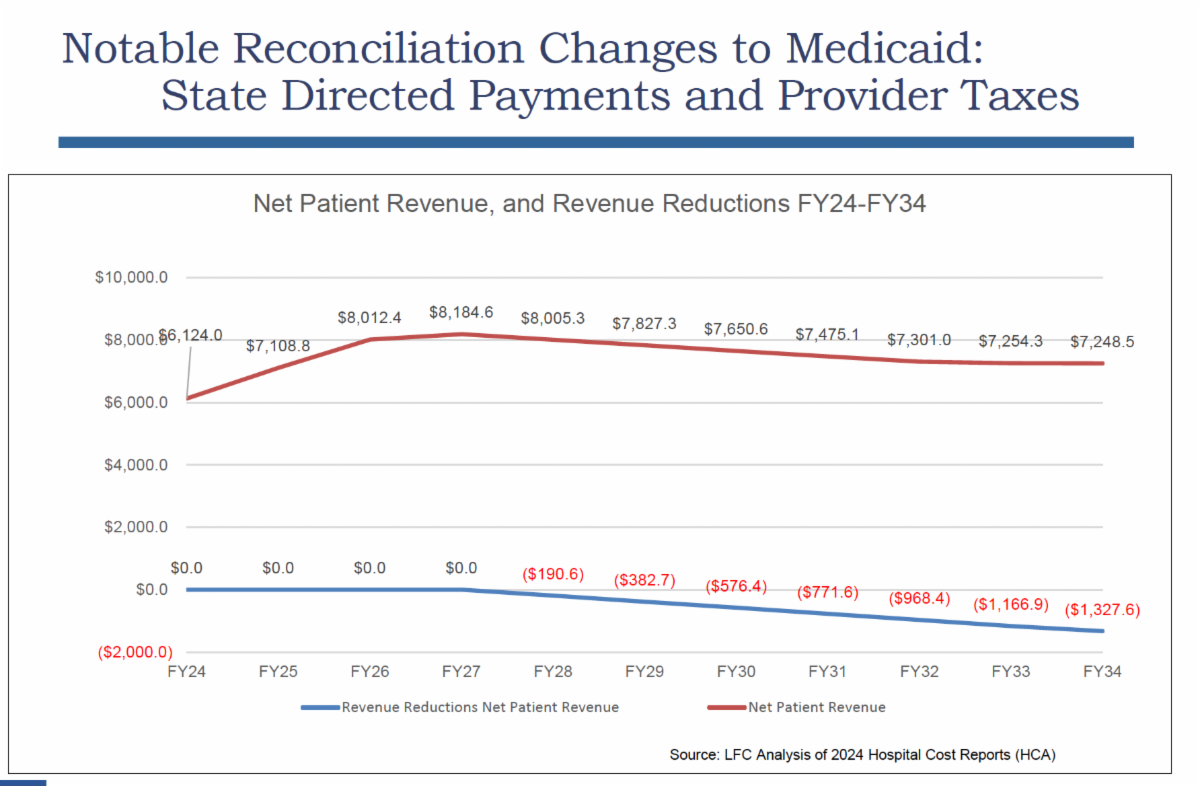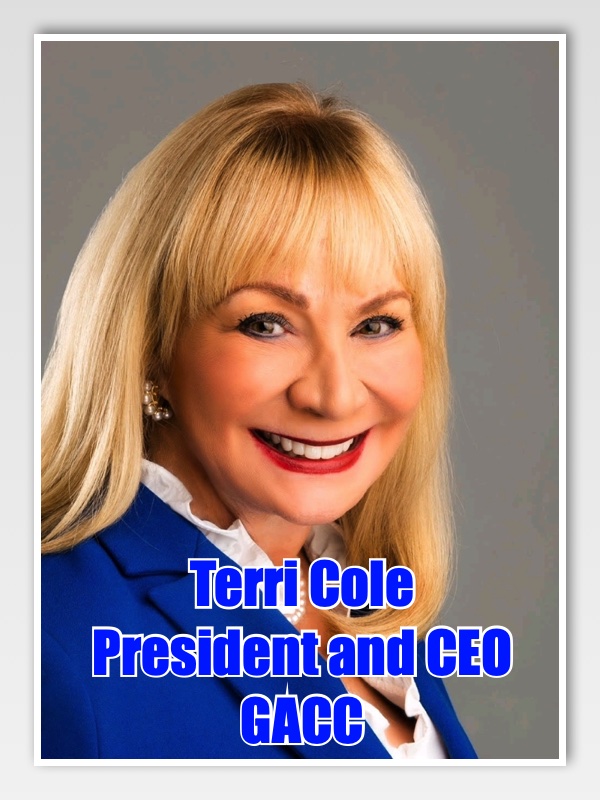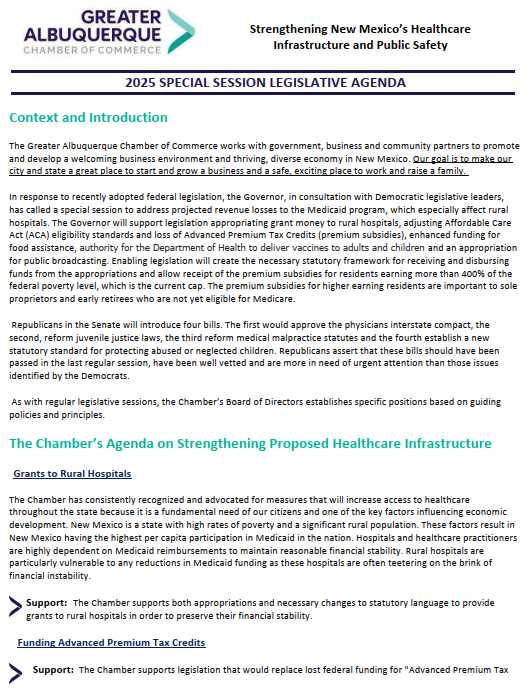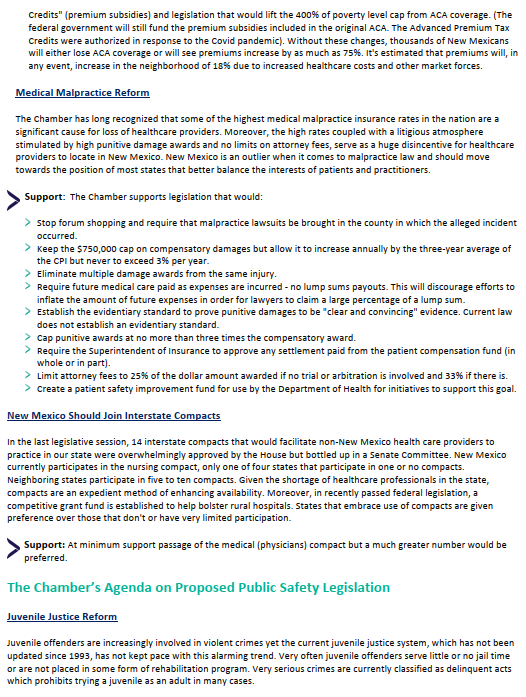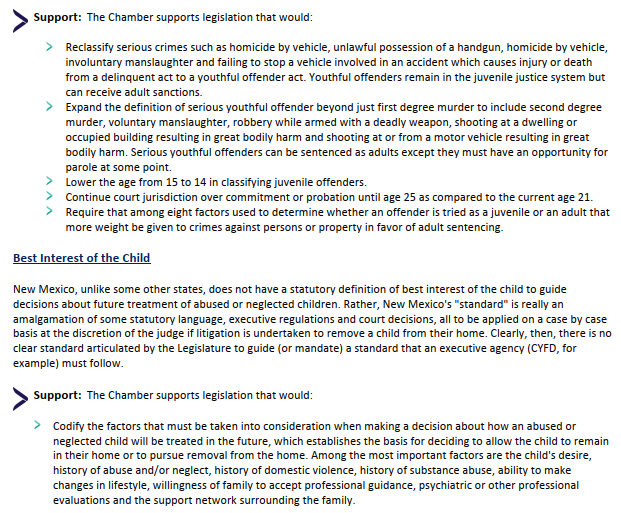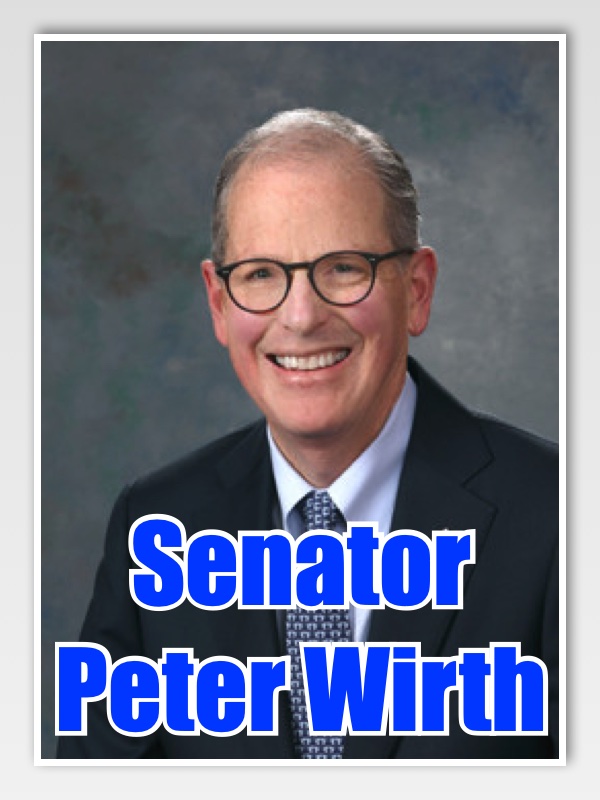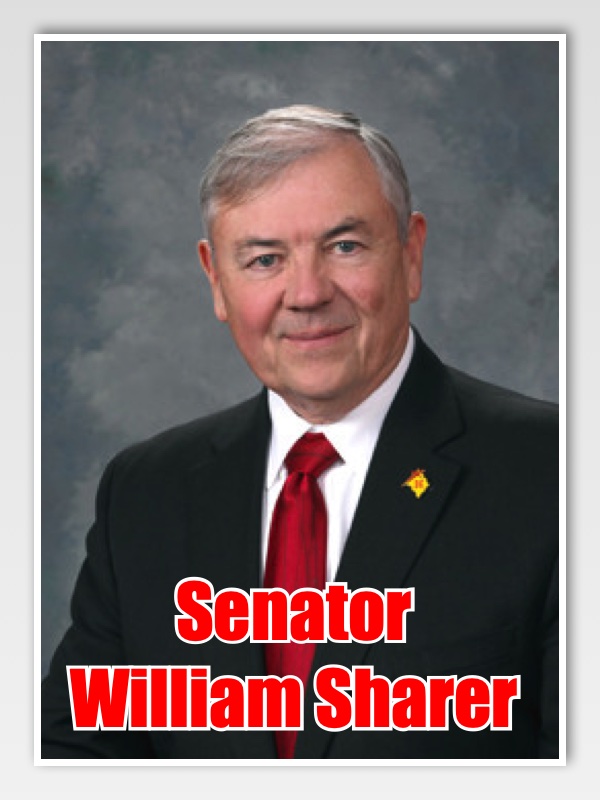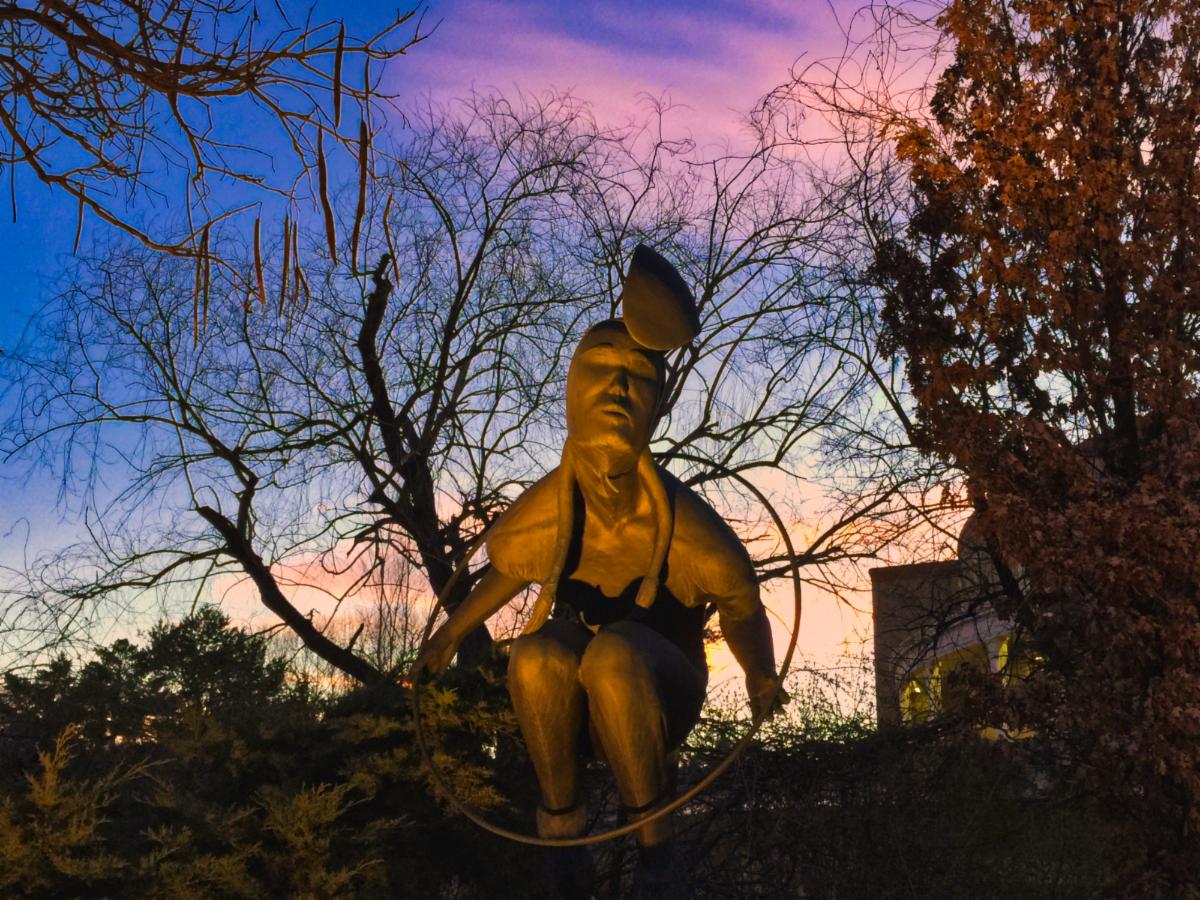TIME FOR A SPECIAL SESSION … |
|
|
Welcome to the Legislative RoundUp, your source for all the news and views from Santa Fe. Tomorrow, Oct. 1, the seventh special session called by Gov. Michelle Lujan Grisham since she’s served as the state’s chief executive officer, will begin. In this edition, we’ll lay out what’s in, what’s out and where we go from here. We note that this particular session proceeds the Albuquerque International Balloon Fiesta by only three days. In the balloonist’s prayer, they ask for “a gentle flight and a safe, soft landing.” That’s a pretty good thought for a legislative session, too — a productive, respectful session with a positive outcome.
HOW DOES A SPECIAL SESSION COME ABOUT? The following is a plain-English explanation of how special sessions come about from the Legislature’s Handbook. The governor may call the Legislature into a special session by proclamation. The only matters that may be considered in a special session are those contained in the governor’s proclamation. The Legislature may call itself into an extraordinary session if it considers the need great enough. In May 2002, the Legislature convened in an extraordinary session; this was the first time in New Mexico’s history that the Legislature had used this power. And, to our knowledge, the last and one and only time this has happened. Of course, this year the special session is being called by the governor. Her proclamation is found below. COST OF A SPECIAL SESSION There is no specific amount associated with special sessions. However, the general consensus figure is likely close to $60,000 per day. A “feed bill” will be passed to appropriate money to pay for legislators’ per diem, staff salaries and costs of operating such as paying the electric bill, printing, etc. |
|
|
GOVERNOR’S PROCLAMATION (A Few More Items Have Been Added!) |
|
|
| Click here to read Gov. Michelle Lujan Grisham’s proclamation. |
|
|
WHAT’S IN — WHAT’S OUT |
|
| The governor and Democratic legislative leaders have agreed on a narrowly focused agenda principally dealing with federal budget cuts and the impacts on health care delivery. The governor explored the possibility of a broader agenda, including public safety measures, federal immigration detention centers and interstate medical compacts.
However, Democratic legislative leaders felt these issues should be dealt with in the regular session beginning in January 2026, suggesting these issues could be prioritized to reach the governor’s desk promptly — much as the Legislature did with a public safety package last session.
Backfilling for federal budget cuts to social welfare programs will be costly, estimates say upward of $400 million or more. The Legislature has had a special committee studying this topic, and that work will help guide decision-making in the session. Issues to be addressed are:
The Chamber is especially supportive of providing assistance to rural hospitals and backfilling the APTCs. These subsidies are of great benefit to small-business owners. Overall, without backfilling, ACA premiums could increase by as much as 75%, making health care insurance unaffordable for many. In turn, this would likely increase uncompensated care, putting more stress on all hospitals but particularly rural hospitals. For more detailed information on the federal spending reductions, follow this link to an analysis prepared by the Legislative Finance Committee. The following chart gives an estimate of the impact on Medicaid spending per capita over the next several years and the amount the state will have to make up to keep enrollment and coverage at the current levels. Currently, Medicaid is the second-largest component of the state’s general fund behind public education (about half of the budget) at 20%. |
|
|
|
GOP ADVOCATES FOR A BROADER AGENDA |
|
| Republican leaders in both the House and the Senate have criticized the narrow agenda, asserting the session should deal with critical public safety issues such as juvenile crime, medical malpractice reform and child-care reform.
They suggest these issues are more critical than what is in the narrow agenda, pointing out many of the Medicaid reductions don’t take effect until 2027 and so could be dealt with in the regular session in January. Republicans will introduce their own package of bills, which will include:
As we did during the regular session, the Chamber will support these measures, though it’s uncertain whether they will be ruled germane and even get a hearing. However, raising these issues now is a good prelude to setting priorities for the upcoming regular session in January. |
|
|
WHERE THE CHAMBER STANDS |
|
|
|
|
| Click to read the Chamber’s Special Session Legislative Agenda |
| WHAT’S NEXT
The House will take the lead in preparing a funding bill to backfill federal reductions; it will be carried by House Appropriations and Finance Chair Nathan Small (D-Dona Ana) and House Majority Floor Leader Rep. Reena Szczepanski (D-Santa Fe) will carry the Advanced Premium Tax Credits bill. In the Senate, Sen. Liz Stephanics (D-San Miguel, Santa Fe, Torrance & Valencia) will carry the Rural Hospital bill. Also in the Senate, the Senate Republican Caucus will sponsor all four Senate bills, though it’s very unlikely those will be ruled germane or considered during the special session. |
|
|
IF YOU WERE WONDERING … WHAT HAPPENED IN GOV. LUJAN GRISHAM’S OTHER SIX SPECIAL SESSIONS |
|
Here’s a quick summary:
|
|
|
AROUND THE ROUNDHOUSE —PERSPECTIVES FROM SENATE LEADERS |
|
| Senate Majority Leader Peter Wirth (D-Santa Fe) shared his perspective on the need for the special session:
“While recent policy decisions out of Washington threaten to set us back, the special session provides us with an opportunity to take the first steps toward long-term stability for working families, rural communities and vulnerable populations across New Mexico. We are fortunate our state is in a strong financial position to help shield New Mexicans from these harmful federal cuts and policies that would otherwise undermine access to health care, nutrition assistance, vaccines and public media access.” |
|
| Senate Minority Leader William Sharer (R-San Juan) has been critical of the limited agenda of the special session:
“While I have questions about the timing and necessity of the special session, I’m always willing to come to the table when there’s an opportunity to address real challenges facing New Mexico families. Failing to address some of the Republican priorities is going to make the special far less special for New Mexicans seeking results, but we’ll work with what’s on the agenda and focus on practical solutions.” |
|
|
SIGNING OFF FROM SANTA FE |
|
| Hoop dancing is a good image for tomorrow when the session gets underway.
As the song says, “There’s a long way to go and a short time to get there.” It’s quite possible that the Legislature can complete its work by Thursday, though lawmakers can stay until Friday. There’s a compelling need to adjourn on Friday as the Balloon Fiesta begins on Saturday, and there aren’t any hotel rooms available. We’re pretty sure no one wants to tough it out in their offices. Thanks for joining us today, and we’ll see tomorrow with all the news and views. Enjoy your evening. |






